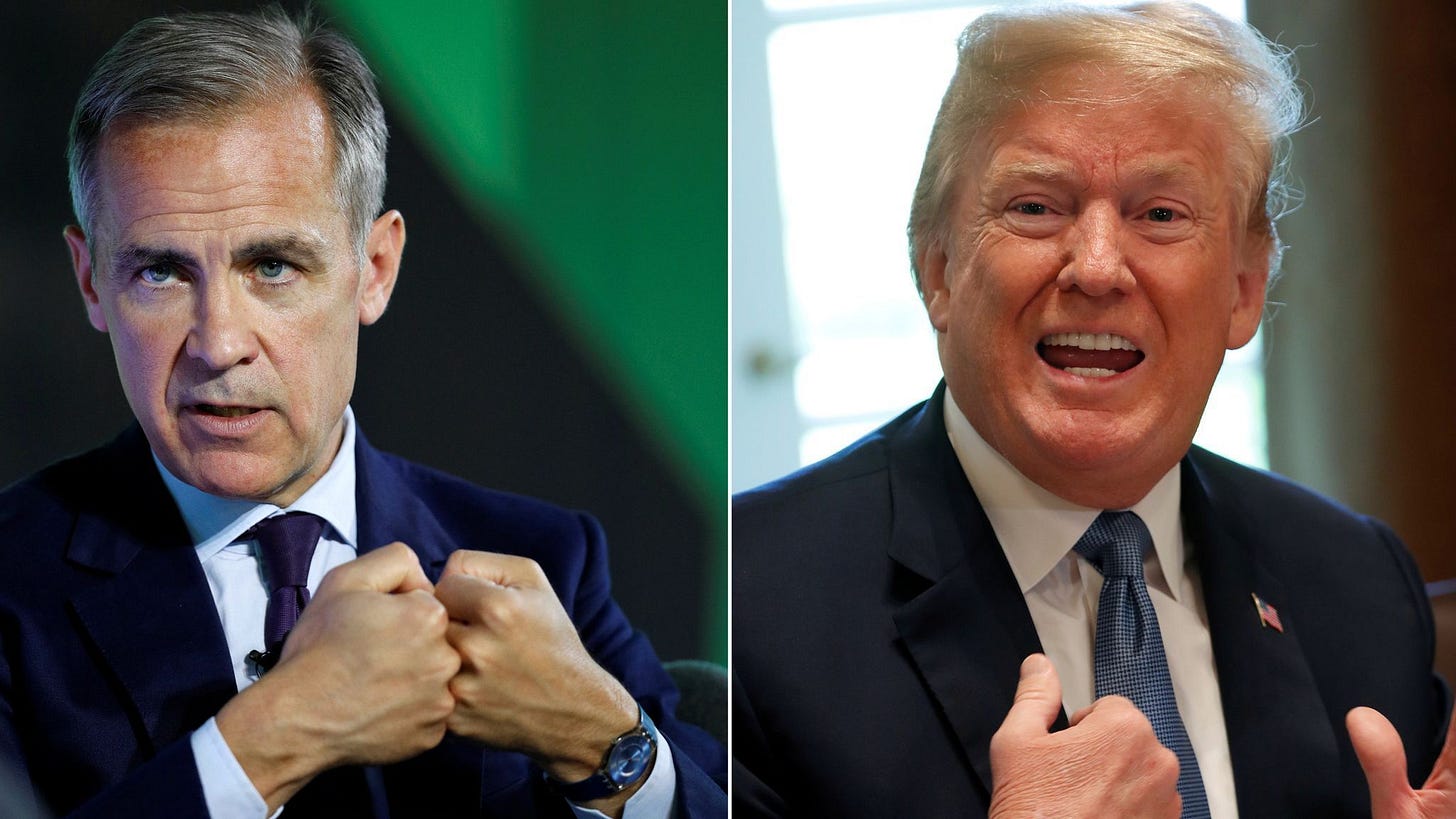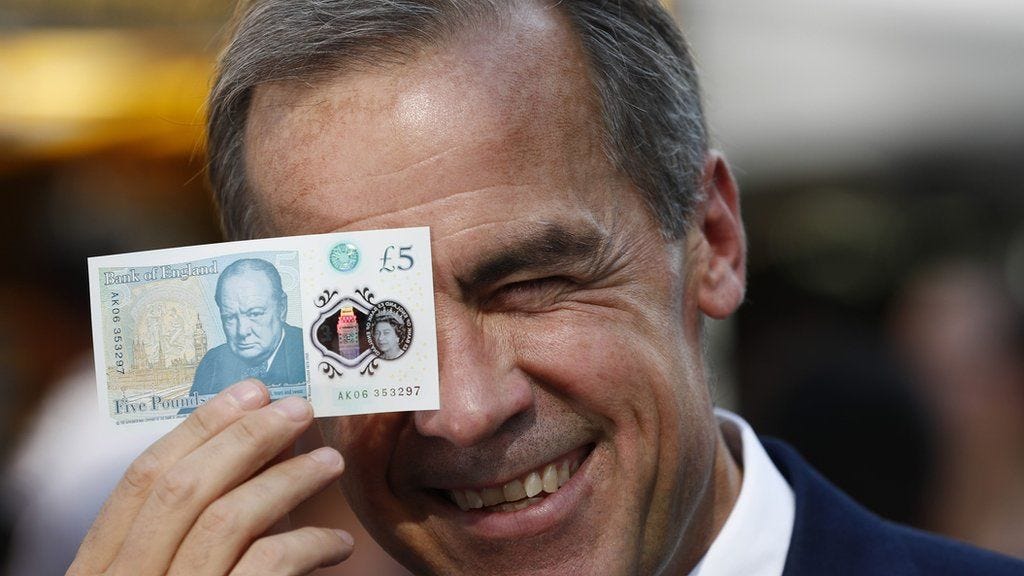The Banker Vs. The Bully: Can Carney Tame Trump
Mark Carney, financial whiz-kid turned political saviour, has completed the rarest of hat tricks in the political world: being appointed by conservatives to run Canada's and Britain's Central Bank.
As the new Canadian Prime Minister, Carney faces the formidable task of dealing with Donald Trump's second presidency and America's sudden transformation from trusted ally to trade adversary. His liberal convictions will be tested against the rising tide of populism from the south, creating a fascinating new chapter in Canada's political narrative. Perhaps Trump will accidentally call him "Treasury Secretary Carney" instead of "Governor" or "Prime Minister" - though titles have never been Trump's strong suit, especially when it comes to foreigners who use polysyllabic words.
Carney distinguished himself as the Governor of the Bank of England from 2013 to 2020 as well as a man with a shortish fuse, becoming the first non-Briton to hold the position in its 300-plus year history. Before that, he guided Canada through the '08 crisis as Governor of the Bank of Canada from 2008 to 2013. The delicious irony, of course, is that conservative governments in both countries hired this liberal-leaning economist, only for him to now emerge as the liberal standard-bearer against conservative populism. Politics makes strange bedfellows, but this particular ménage à trois between Carney, conservatives, and liberals deserves its own reality TV show.
At the Bank of England, Carney's major job was navigating the economic chaos following the Brexit referendum, implementing measures to stabilise financial markets while British politicians worked diligently to undermine him at every turn. This experience with nations insistent on economic self-harm should prove valuable when dealing with America's newfound enthusiasm for trade wars. In a testament to either his masochism or optimism, after dealing with politicians in the United Kingdom, Carney decided becoming one in Canada was somehow a logical career progression.
His campaign has focused on economic stability and growth, trying to offer a clean break from the Trudeau years without actually criticising anything specific Trudeau did - the political equivalent of saying "I'll fix everything" without identifying what was broken. Proving he can be as political as the next guy.
He's been criticised for a technocratic approach to governance, as if expertise and data-driven decision-making were suddenly character flaws in politics. In a world where politicians with weird hairstyles seem magnetically drawn to him - from Harper to Johnson to Trump - perhaps Carney's slicked-back banker's cut is the counter-revolution we need.
Carney's first priority will be navigating the hostile situation brewing to his South, with America's rapid transformation from best friend to commercial antagonist. Unlike his predecessor, Carney is expected to stand firmly on his liberal economic principles, refusing to bend to populist pressure from across the border - and prey like hell.
His "pragmatic approach" to Canada-US relations isn't about appeasement but about strategic conviction – fighting for free trade and rules-based commerce against a tide of protectionism. The supreme irony of our times is that this man, once trusted by conservatives to manage their money, is now cast as the liberal counterweight to Trump, while Pierre Poilievre, his conservative opponent, auditions for the role of Trump's northern apprentice.

His unique position as a former Bank of England Governor offers unprecedented potential for strengthened Canada/UK relations, assuming anyone in Britain remembers who he is after the revolving door of post-Brexit Prime Ministers. In Keir Starmer, he may finally find a kindred spirit - another technocrat trying to clean up the mess left by more colourful predecessors. They can bond over spreadsheets and the shared trauma of dealing with conservative fiscal policies that somehow never quite add up.
On the global stage, Carney's premiership will be defined by his unwavering liberal economic principles in a world increasingly dominated by populist sentiment. European leaders, who've had their fill of anglophone drama queens, might appreciate Carney's measured banker's demeanor and his commitment to evidence-based policy. His previous work on sustainable finance initiatives could enhance cooperation on climate finance - though in the grand tradition of global climate politics, expect lots of ambitious targets and considerably less ambitious actions.
Domestically, Carney's political survival depends on addressing Canada's housing affordability crisis, taming inflation, and managing Canadian energy production - sound familiar? The political paradox here is exquisite: conservatives who once trusted him with their monetary policy now paint him as an economic radical, while liberals who once viewed central bankers with suspicion now embrace him as their economic messiah. If politics weren't so consequential, the ideological gymnastics would be entertaining.
The upcoming Canadian election feels like yet another remake of a tired 2024 political film: technocratic competence versus populist fervor. Poilievre, having styled himself as the voice of the "forgotten" Canadian, must now explain why the man once trusted by conservatives to manage both Canadian and British economies is suddenly unqualified to manage the Canadian government. Meanwhile, Carney must convince voters that his brand of liberalism is strong enough to withstand the populist pressure from the south while remaining sufficiently different from the Liberal establishment they've grown tired of.
Early polling shows a transformed race since Carney's entrance. The conservative steamroller has suddenly hit a technocratic roadblock, creating a dead heat. In the grand tradition of Canadian politics, the most likely outcome is a minority government where actual governance involves endless compromise with regional parties – proving once again that Canadians prefer their politics like their maple syrup: messy, complicated, and requiring patience.
In the end, this race showcases politics at its most wonderfully absurd: a man hired by conservatives to run central banks in two countries now leads the liberal charge against conservative populism, standing firm on his principles as America shifts from ally to adversary.
As Carney prepares to face down Trump's trade war with liberal economic convictions rather than populist rhetoric, Canada begins a new chapter in its relationship with its southern neighbour - one where friendship has soured into competition, and where a banker-turned-politician must prove that expertise still matters in a world increasingly enamoured with simple solutions to soundbite problems. Plus ca (must/k) change…
Keep up to date with The Letts Journal’s latest news stories and posts at our website and on twitter.




